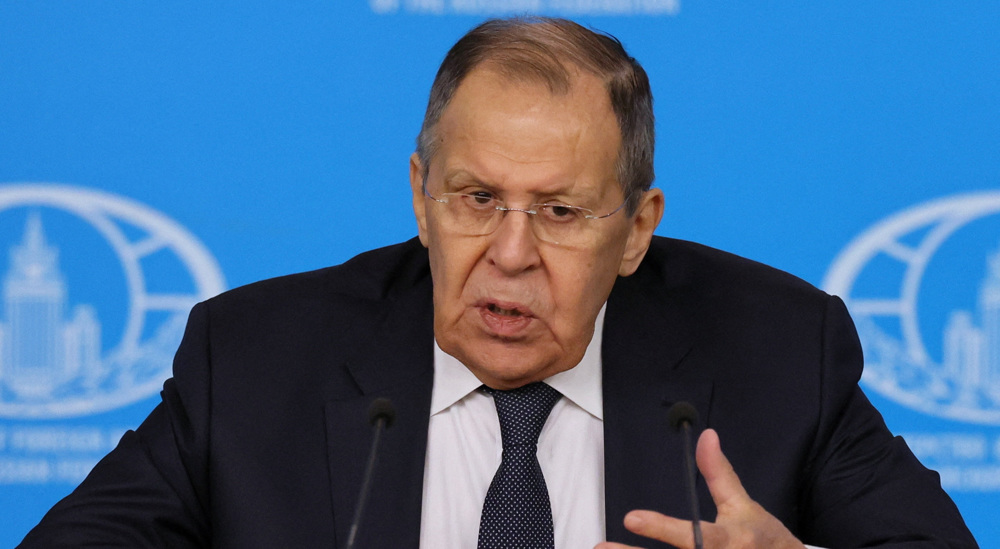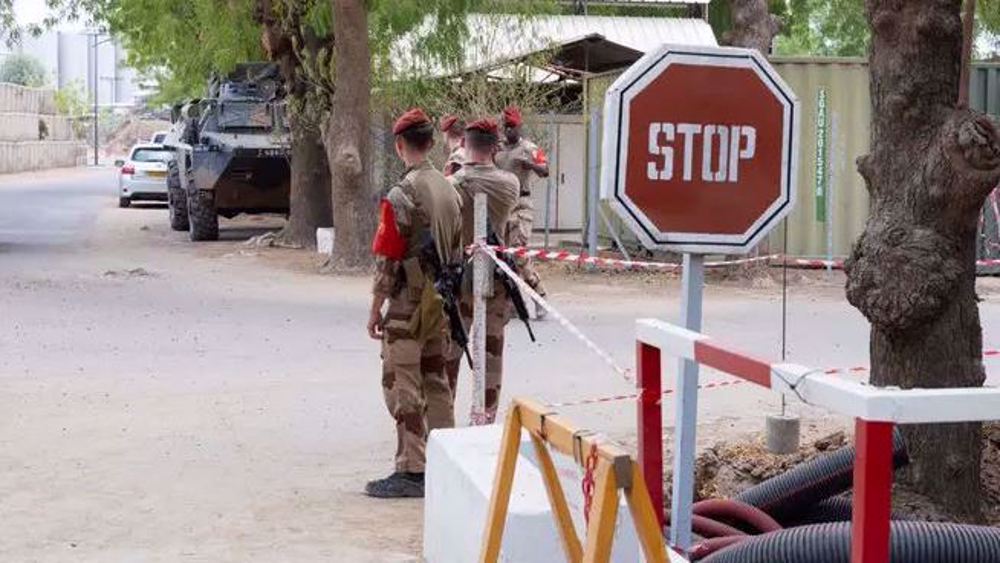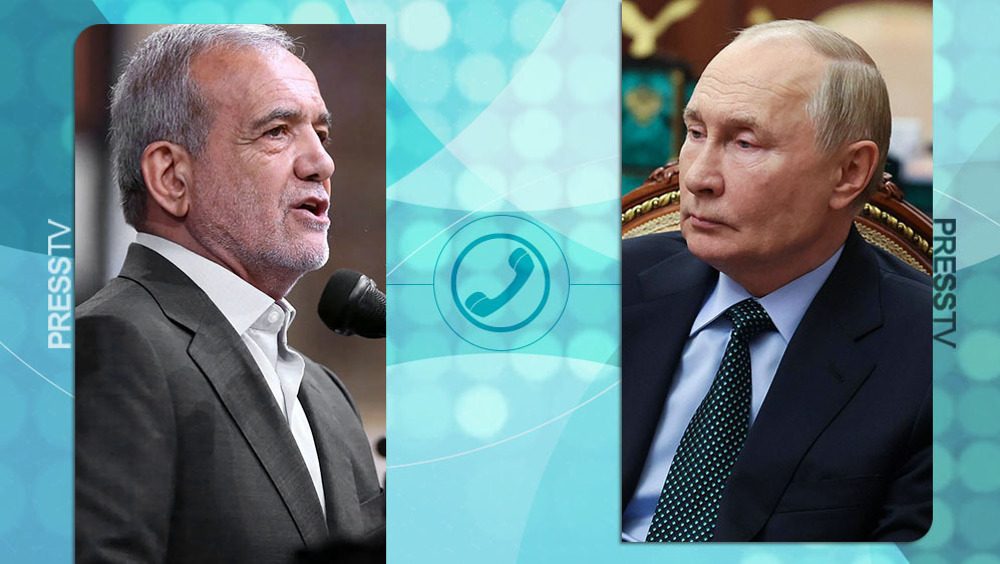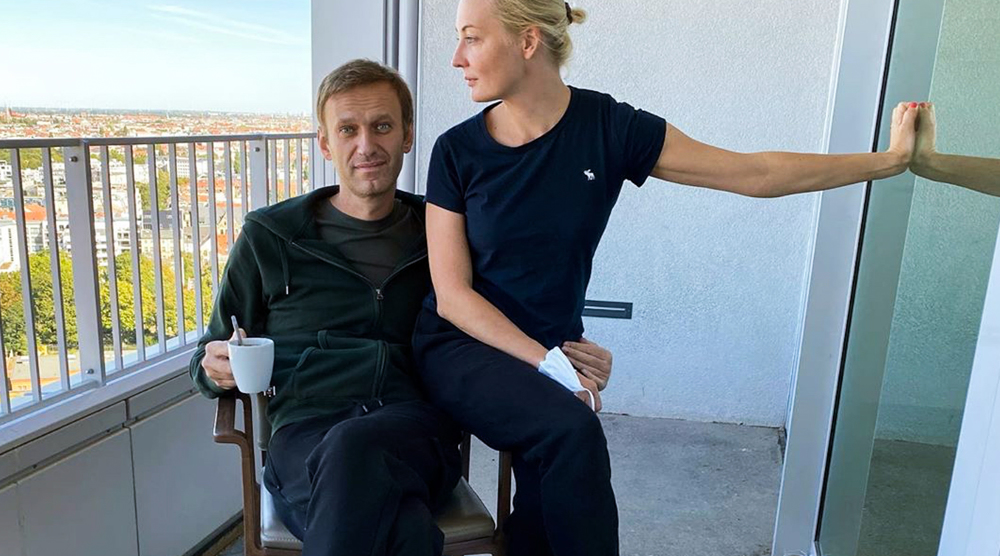Russia rejects OPCW report on Navalny as part of ‘pre-planned conspiracy’
Russia has denounced as part of a “pre-planned conspiracy” a recent report by the Organization for the Prohibition of Chemical Weapons (OPCW) confirming the presence of a substance similar to Novichok in opposition figure Alexei Navalny’s blood.
The Russian Foreign Ministry said in a statement on Tuesday that the OPCW report was the continuation of the conspiracy scenario that Russia poisoned the Kremlin critic.
“We drew attention to the quite predictable promptness with which the German side ‘agreed’ with the publication of the report on the results of Navalny’s biomaterials research on the OPCW website, which was received literally the day before, apparently specifically for the beginning of the session of the OPCW Executive Council,” the ministry said.
“Thus, the essentially fantasy story, initiated on Berlin’s behalf by its Euro-Atlantic allies, together with the leadership of the OPCW technical secretariat, was continued according to a pre-planned conspiracy scenario,” the Russian ministry said.
The OPCW said in a statement earlier on Tuesday that biomarkers in Navalny’s blood and urine had “similar structural characteristics as the toxic chemicals belonging” to the Novichok group.
The Hague-based agency said, however, that the substance detected in the samples was not on the list of banned chemical weapons and was a new and undeclared variant in the Novichok family.
Germany says the OPCW statement confirms that Navalny was poisoned with a Novichok-group substance.
The Russian ministry further said Moscow intended to present its vision of the situation with Germany’s interaction with the OPCW during the 95th session of the organization’s Executive Council, providing the members states of the Chemical Weapons Convention (CWC) with “the timeline of behind-the-scenes manipulations of the main characters of this performance.”
Navalny was taken to a local hospital in the Siberian city of Omsk on August 20 after collapsing on a domestic flight. He was airlifted to Germany on August 22.
On September 2, the German government claimed that Navalny had been poisoned with a Novichok-family toxic agent. Berlin further claimed that three EU laboratories, including those in France and Sweden, had confirmed its test results for the Russian blogger.
Russia has said that tests on Navalny’s blood samples during his stay at the hospital in Omsk were negative, and that Germany should provide the details of its own tests on the opposition figure.
In mid-September, OPCW experts took samples from Navalny at Berlin’s Charite Hospital to examine whether traces of Novichok could be found in his blood.
Moscow said at the time that it had no doubt that the OPCW would confirm allegations that Navalny had been poisoned with a Novichok nerve agent, given the body’s bias against Russia.
OPCW has been criticized for political bias in the past.
Russia has also censured Germany’s refusal to share with Moscow the details of its medical treatment of Navalny and Berlin’s referral of the case to the OPCW.
The Hague-based agency’s Director-General Fernando Arias said the report’s findings “constitute a matter of grave concern,” calling on members to uphold the international treaty banning chemical weapons use.
In a joint statement, 44 OPCW member countries, including Germany, Britain, and the United States, also called on Russia to investigate the case.
“We urge the Russian Federation, on whose territory the attack took place, to investigate and to disclose, in a swift and transparent manner, the circumstances of this chemical weapons attack,” the statement said.
‘The goal is to create a pretext for sanctions on Russia’
Separately on Tuesday, Alexander Shulgin, Russia’s permanent representative to the OPCW, said the goal of the campaign involving Navalny was to create a pretext for additional sanctions on Russia.
Shulgin said that as long as Russia was not given evidence of the presence of a nerve agent in Navalny’s body, Moscow would consider all developments in the case as “an unbridled propaganda campaign of lies, or, more simply, a low-grade provocation.”
He also said the purpose of the campaign was to denigrate Russia with a series of unsubstantiated accusations and thereby create a pretext for introducing another ‘tranche’ of sanctions against the country.
Shulgin said Russia did not accept a conversation based on ultimatums and threats over Nalany’s case, stressing that Moscow was ready to cooperate “solely on an equal, mutually respecting basis.”
Western governments have been attacking Russia with accusations that it poisoned Navalny, saying Moscow must help in investigations or face consequences.
The Russian government has denied any involvement in any attack on Navalny.
Navalny was discharged from inpatient care at Charite Hospital in Berlin more than two weeks ago. He had allegedly spent 24 of his 32 days of treatment in intensive care.
Navalny demands EU crackdown on ‘oligarchs’ close to Kremlin
Meanwhile, Navalny has called on the European Union (EU) to take tough action against individuals he called oligarchs close to the Kremlin.
“Sanctions against the whole country don’t work. The most important thing is to impose entry bans on profiteers of the regime and freeze their assets,” Navalny told the Bild newspaper.
This came after Germany said it was discussing with its partners what action to take after the OPCW report.
German government spokesman Steffen Seibert said in a statement on Tuesday that the next steps would be discussed in the Executive Council of the OPCW and with EU partners.
“Any use of chemical weapons is a serious matter and cannot remain without consequences,” he said.
Options include targeted asset freezes or travel bans on Russian individuals deemed to be involved in the Navalny case, economic sanctions, and the halting of the Nord Stream 2 pipeline project that is being built to carry gas directly from Russia to Germany.
Relations between Moscow and the rest of Europe have deteriorated since 2014, when the then-Ukrainian territory of Crimea voted in a referendum to fall under Russian sovereignty. The EU leveled several rounds of sanctions against Moscow over the matter.
US ‘must be held accountable’ for supporting terrorism in Iran: Araghchi
VIDEO | Pro-Palestine protest in Madrid challenges UK repression
Canada PM: World order in ‘midst of a rupture’ from US hegemony
VIDEO | Iron walls: One year of Israel’s largest military operation in Palestine in years
Italian farmers protest EU-Mercosur free trade deal
VIDEO | Russian FM holds annual press briefing, highlighting ‘equality-based’ diplomacy
VIDEO | Israel rejects Gaza 'technocratic body' amid continued suffering in Gaza
Iranian prodigy Benyamin Faraji wins Under-17 title in Qatar

















 This makes it easy to access the Press TV website
This makes it easy to access the Press TV website